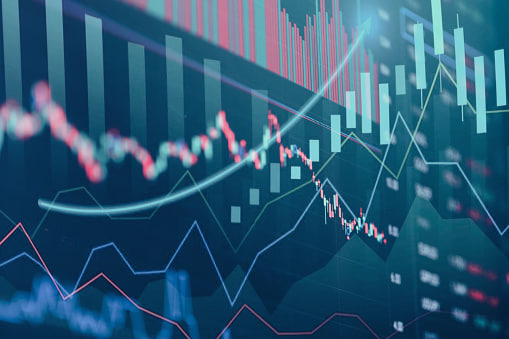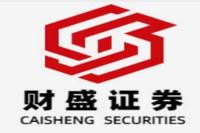港股回购潮:腾讯、友邦保险领衔,解读市场信号 (Meta Description: 港股回购, 腾讯回购, 友邦保险回购, 快手回购, 市场信号, 投资策略)
Whoa! Hold onto your hats, folks! The Hong Kong stock market just witnessed a massive wave of share buybacks, and it's sending ripples throughout the investment world. On November 21st, a whopping 48 companies engaged in buyback activity, showcasing a significant level of confidence in their own prospects. But the sheer scale of some of these buybacks – particularly from giants like Tencent, AIA (友邦保险), and Kuaishou (快手-W) – is truly jaw-dropping. Think about it: Tencent alone splashed out a staggering HK$7.04 billion! AIA chimed in with HK$4.14 billion, and Kuaishou contributed a hefty HK$1.62 billion. This isn't just a minor market adjustment; this is a full-blown statement. Are these companies signaling a bullish outlook? Are they strategically positioning themselves for future growth? Or is there something else entirely at play? Let's dive into the details and unravel the mystery behind this extraordinary surge in Hong Kong stock buybacks. We'll explore the implications for investors, analyze the motivations behind these mega-transactions, and examine the broader market context. Get ready for an in-depth analysis that'll leave you better informed and better equipped to navigate the exciting world of Hong Kong stock investments. This isn't just another market report; it's your insider's guide to understanding the signals and making smarter investment decisions. Prepare to unlock the secrets behind this fascinating financial phenomenon!
港股回购:市场情绪的晴雨表
So, what's the big deal about these share buybacks? Well, it's more than just companies buying back their own stock. It’s a powerful signal – a vote of confidence, if you will. When a company repurchases its shares, it's essentially saying, "Hey, we believe our stock is undervalued, and we're going to capitalize on this opportunity." This action often boosts investor sentiment, potentially pushing the share price higher. Think of it like this: If the company itself is willing to invest heavily in its shares, it might encourage other investors to follow suit.
But let's not get carried away. While a buyback is usually a positive sign, we need to examine the context. Are these companies buying back shares because they truly believe their stock is undervalued, or are there other factors at play? Perhaps they’re looking to reduce the number of outstanding shares, thereby increasing earnings per share (EPS). Maybe they have excess cash flow and aren't seeing better investment opportunities elsewhere. Or, could there be more strategic motives? The answers, my friends, are complex and require a more nuanced approach.
深入分析腾讯、友邦保险和快手
Let’s zoom in on the three big players: Tencent, AIA, and Kuaishou. These are major companies, and their actions carry significant weight. Tencent's HK$7.04 billion buyback is particularly noteworthy. It signals a strong belief in the company's long-term prospects, despite recent market headwinds. AIA's HK$4.14 billion buyback also speaks volumes about its financial strength and confidence in its future performance. Finally, Kuaishou's HK$1.62 billion buyback suggests a move to stabilize its share price after a period of volatility.
| Company | Buyback Amount (HKD Billion) | Potential Reasons |
|-----------------|-----------------------------|-------------------------------------------------|
| Tencent Holdings | 7.04 | Undervalued shares, increased EPS, strategic move |
| AIA Group | 4.14 | Strong financial position, shareholder return |
| Kuaishou | 1.62 | Share price stabilization, improved investor sentiment|
These buybacks aren’t isolated incidents. They reflect a broader trend in the Hong Kong market, suggesting a growing confidence among some of the region's leading companies. However, it’s crucial to remember that past performance is not indicative of future results. While these buybacks are positive indicators, investors should still conduct thorough due diligence before making any investment decisions.
Remember, this isn't just about numbers; it's about understanding the underlying sentiment and the long-term implications.
影响因素:宏观经济与公司策略
Several factors could be contributing to this wave of buybacks. The global macroeconomic environment plays a significant role. Interest rates, inflation, and geopolitical events all influence investor sentiment and corporate decisions. For instance, if interest rates are low, companies might find it cheaper to buy back their own shares rather than invest in other projects.
Furthermore, each company's individual strategy plays a crucial role. A company's financial health, growth prospects, and management's outlook all factor into the decision to repurchase shares. A company with strong cash flow and a belief in its long-term value might see buybacks as an effective way to return value to shareholders.
投资者应如何应对?
This wave of buybacks presents investors with a fascinating opportunity. However, it's critical to remember that this isn't a guaranteed path to riches. Due diligence is paramount. Before jumping into the market, investors should carefully consider the following:
- Company fundamentals: Analyze the financial health, growth prospects, and competitive landscape of any company you're considering investing in.
- Market conditions: Assess the overall market environment and the potential risks and opportunities.
- Investment timeline: Determine your investment horizon and risk tolerance. Buybacks are a long-term strategy, not a get-rich-quick scheme.
- Diversification: Don't put all your eggs in one basket. Diversify your portfolio to minimize risk.
常见问题解答 (FAQ)
Q1: Are share buybacks always a good sign?
A1: Not necessarily. While often positive, they need to be considered in the context of the company's overall financial health and strategy. A company might be buying back shares to artificially inflate its stock price, masking underlying problems.
Q2: How do share buybacks affect the stock price?
A2: Typically, share buybacks increase the demand for the stock, potentially leading to a higher price. This effect depends on various factors, including market conditions and investor sentiment.
Q3: What are the risks associated with investing based on share buybacks?
A3: There's no guarantee that a share buyback will lead to higher stock prices. Market conditions, company performance, and investor sentiment heavily influence stock prices.
Q4: Should I invest in a company just because it's doing a buyback?
A4: No. Share buybacks are one factor among many. Thorough due diligence is essential, considering the company's fundamentals, financial health, and future prospects.
Q5: What are some alternative investment strategies?
A5: Diversification is key. Consider other investments like bonds, real estate, or alternative assets to balance your portfolio.
Q6: Where can I find more information about Hong Kong stock buybacks?
A6: Reliable financial news sources, regulatory filings, and company investor relations websites provide valuable information.
结论:谨慎乐观
The recent wave of Hong Kong stock buybacks presents a compelling narrative. The actions of companies like Tencent, AIA, and Kuaishou signify a degree of confidence in their future prospects. However, investors should remain cautious and avoid making investment decisions based solely on this trend. Thorough due diligence, a diversified portfolio, and a long-term investment horizon are critical for success in the dynamic Hong Kong stock market. Remember, this is a marathon, not a sprint. Stay informed, stay vigilant, and happy investing!



